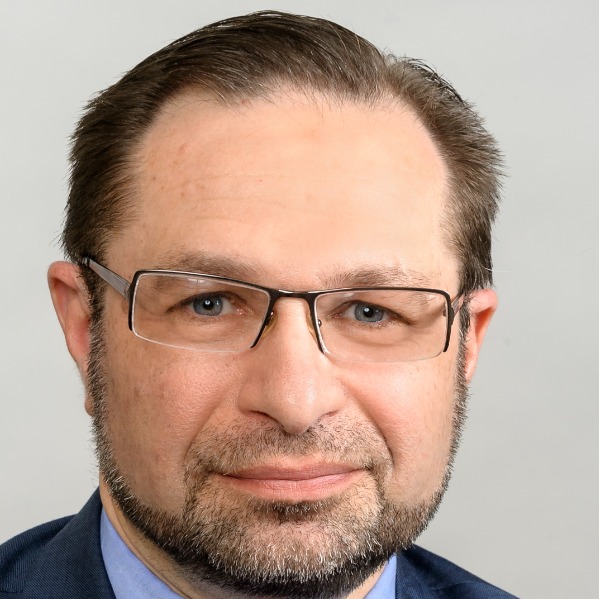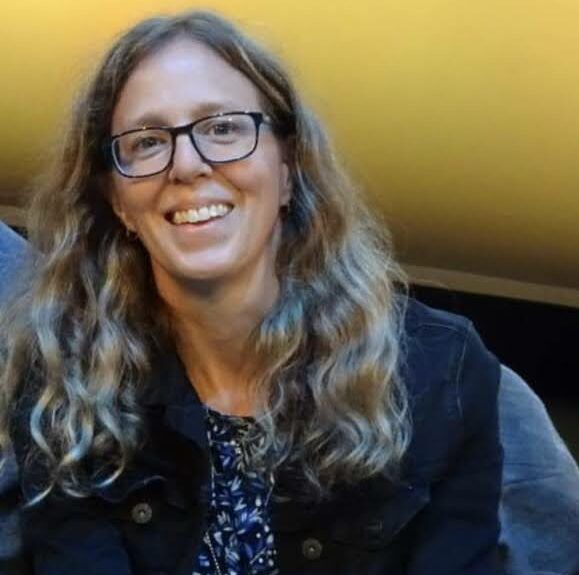About Us
Our Mission
The International Society for Virtual Rehabilitation has as its main purpose the encouragement of research in, education in, advocacy of, and improved collaboration between researchers, clinicians, industry and policy makers with regard to, virtual rehabilitation and tele-rehabilitation. The Society’s purpose will be fulfilled through scientific meetings, tutorials, publications, postings on the Web, awards, sponsored pilot research, and other exchange of information.
Statutes & By-Laws
By-Laws of the International Society for Virtual Rehabilitation (Articles of Incorporation)
As amended at a meeting of the Board of Directors on February 7, 2012
Proposed revisions January 7, 2013
Proposed revisions November 23, 2017
Amended at a meeting of the Board of Directors on December 9, 2019
Terminology
Within the scope of these Bylaws, the following terms apply:
- “Virtual Rehabilitation” is understood as all forms of clinical intervention (physical, occupational, cognitive, or psychological) that are based on, or augmented by, the use of virtual reality, augmented reality and computing technology. The term applies equally to interventions performed locally or at a distance (tele-rehabilitation).
- “Society” is understood as meaning the International Society for Virtual Rehabilitation, Inc.
Article I. PURPOSE
Section I-1. Purpose
The International Society for Virtual Rehabilitation has as its main purpose the encouragement of research, education, advocacy, and collaboration between researchers, clinicians, industry partners, and policy makers with regard to virtual rehabilitation and tele-rehabilitation.
Section II-2. Exclusion
The International Society for Virtual Rehabilitation is organized exclusively for educational, and scientific purposes, including, for such purposes, the making of distributions to organizations that qualify as exempt organizations under section 501(c)(3) of the Internal Revenue Code, or corresponding section of any future federal tax code.
Notwithstanding any other provisions of these Bylaws, the Society shall not carry on any other activities not permitted to be carried on by a corporation exempt from Federal Income Tax under section 501.c(3) of the Internal Revenue Code, or the corresponding section of any future tax code.
No part of the net earnings of the Society shall inure to the benefit of, or be distributable to its members, trustees, officers or other private persons, except that the organization shall be authorized and empowered to pay reasonable compensation for services rendered and to make payments and distributions in furtherance of the purposes set forth in the purpose clause hereof. No substantial part of the activities of the Society shall be the carrying on of propaganda, or otherwise attempting to influence legislation, and the organization shall not participate in, or intervene in (including the publishing or distribution of statements) any political campaign on behalf of any candidate for public office. Notwithstanding any other provision of this document, the organization shall not carry on any other activities not permitted to be carried on (a) by an organization exempt from federal income tax under section 501(c)(3) of the Internal Revenue Code, or corresponding section of any future federal tax code, or (b) by an organization, contributions to which are deductible under section 170(c)(2) of the Internal Revenue Code, or corresponding section of any future federal tax code.
Article II. MEMBERSHIP
Section II-1. Membership categories
Membership in the Society shall be open to all persons, organizations, or other entities interested in the field of virtual rehabilitation and/or tele-rehabilitation as defined by the membership categories below, upon application to the Membership Chair followed by remittance of membership dues to the Treasurer as hereinafter provided.
Membership in the society is on a two-year basis from the date of registration and payment of dues. Continuing membership shall require payment of renewal dues every two years. Membership will be revoked if the dues are not paid by 30 days after the due date.
Membership Categories include:
- Regular Membership: Open to any individual person with a professional degree (Bachelors or Higher) working in a research, educational, commercial, or clinical environment, and directly or indirectly concerned with Virtual Rehabilitation (VR) and/or Tele-rehabilitation (VRT). Regular Membership entitles the holder to vote in all elections and hold office during the period of their membership.
- Student Membership: Open to any individual with full-time student status at a recognized degree-granting institution. A letter from the Dean’s Office or Faculty Staff, or a scanned valid student ID, certifying full-time student status must be submitted on initial application and renewal of membership. Student Membership does not carry voting privileges.
- Corporate Membership: Open to any corporate entity that designs, produces or provides products or services relating to VR or VRT and wishes to participate in the activities of the Society. Corporate Membership does not carry voting privileges.
- Clinical Membership: Open to current clinicians interested in the clinical application of virtual reality technology in patient care. Clinician membership is FREE for the first year and entitles the holder to vote in all elections. Clinician status must be submitted on initial application and renewal of membership, and verified by a letter attesting to Professional Employment status or Professional Association Membership number.
- User Membership: Open to any user of virtual rehabilitation or tele-rehabilitation or family member who wishes to participate in the activities of the Society. User Membership does carry voting privileges for the period of their membership.
Section II-2. Rights of Members
Each member with voting privileges shall be entitled to one (1) vote on any question requiring a vote of the membership of the organization. Membership will entitle an individual to attend society-affiliated conferences and other events at a reduced fee to be determined by the conference organizer. Regular and User members are eligible to serve as Trustees and/or on the Board of Directors, or other ad-hoc committees, upon election or by appointment by the President.
Article III. MEETINGS
Section III-1. Annual Meeting
Annual meetings of the Society shall be held on dates and at locations decided on by the Board of Directors. All members shall be notified in writing/email, not less than six months before each Annual Meeting. Meetings will typically be held in conjunction with a society-affiliated conference. Board members who are unable to attend in person will be permitted to contribute electronically.
Section III-2. Society Conferences
The Society shall support and promote scientific conferences relevant to its purpose. The Board of Directors, upon recommendation of the Secretary, will determine whether to agree to a Memorandum of Understanding with such conferences.
The founding conferences of the Society, the International Conference on Disability, Virtual Reality and Associated Technologies (ICDVRAT) and International Conference on Virtual Rehabilitation (ICVR), will be designated as ISVR Conferences and will be maintained as the principal annual conferences of the Society. ICVR is recognized as the Society’s official conference and the ICVR steering committee is an integral part of the ISVR committee structure Both ISVR Conferences will maintain a close cooperative partnership with the Society to co-promote the professional aims of the Society.
Conferences with which Memoranda of Understanding are established will be designated ISVR Affiliated Conferences upon written request from their governing bodies.
Section III-3. Special General Membership Meetings
In extraordinary circumstances, a general membership meeting may be called if at least 5 members of the Board of Directors petition the President of the Society. Within two weeks of such a petition, the President shall notify the general membership of the time and location of an extraordinary meeting that must be held within two months of the date of the announcement.
Article IV. DUES AND FEES
Section IV-1. Establishment of Dues and Fees
Dues and fees for each category of membership shall be set and reviewed biennially and may be modified periodically by the Board of Directors.
Section IV-2. Use of Dues and Fees
The dues and any other fees collected by the Society shall be used only for legitimate expenses associated with the Society to be determined by the Board of Directors, as described in Section II-2.
Article V. DISSOLUTION
Section V-1. Distribution of assets upon dissolution.
Upon the dissolution of the Society, assets shall be distributed for one or more exempt purposes within the meaning of section 501(c)(3) of the Internal Revenue Code, or corresponding section of any future federal tax code, or shall be distributed to the federal government, or to a state or local government, for a public purpose. Any such assets not disposed of shall be disposed of by the Court of Common Pleas of the county in which the principal office of the organization is then located, exclusively for such purposed or to such organization or organizations, as said Court shall determine, which are organized and operated exclusively for such purposes.
Article VI. OFFICERS
Section VI-1. Officers and Their Terms
Officers of the Society shall consist of a President, Vice President, Secretary, Treasurer, and Chairs, each of whom shall serve for a term of three years, without compensation. No individual shall serve more than two consecutive terms in the same office. Terms of office shall begin on January 1st of the year following an election.
1.1 Responsibility.
All officers are responsible for reporting on their actions to the Board of Directors as requested by the President. The President shall call Board meetings at least on a quarterly basis. If more than two quarterly meetings of the Board are missed, the Chair may be replaced by majority vote of the Board of Directors.
1.2 Termination of Duties of an Officer
Officers shall normally serve their full term. In exceptional circumstances, an officer may be removed from office by a majority vote of voting membership. Each officer shall, upon the expiration of his/her term, or the termination of duties for any other reason, deliver to the successor the records of office.
Section VI-2. Executive Officers
2.1 President
The President shall preside at annual meetings of the membership and quarterly meetings of the Board of Directors and shall perform the recognized functions of the office. To ensure continuance of society actions and historical knowledge, the President shall be elected from a current or previous board member, will serve one 3-year term as President and one 3-year term as Past President.
2.2 Vice-President
The Vice President shall preside in the absence of the President and shall perform the recognized functions of the office. If the office of President becomes vacant, the Vice President shall automatically become President for the remaining period of the term of the President. To ensure continuance of society actions and historical knowledge, the Vice President shall be elected from a current or previous board member, and subject to confirmation through election, will normally succeed as President for a further 3-year term.
2.3 Past President
To insure continuance of society actions and historical knowledge, the Past President shall advise the incoming President.
2.4. Secretary
The Secretary shall give notification of the date, time and place of meetings of the Board of Directors of the Society, and keep the minutes of all meetings of the Board of Directors, the annual meetings and any extraordinary meetings of the Society. The Secretary shall prepare such directives and other documents as are needed and authorized by the Board of Directors.
2.5 Treasurer
The Treasurer shall keep and maintain accurate accounts of the transactions of the Society, including accounts of its assets, liabilities, receipts, and disbursements. The Treasurer shall deposit all moneys and other valuables in the name and to the credit of the Society with such depositories as may be designated by the Board of Directors. He or she shall disburse the funds of the Society as may be ordered by the Board, shall render to the President and Directors, whenever they request it (but no less than twice/fiscal year), an account of all his or her transactions as Treasurer and of the financial condition of the Society, and shall have such other powers and perform such other duties as may be prescribed by the Board of Directors or the Bylaws. For purposes of reporting, the Society fiscal year coincides with the calendar year.
2.6 Vacancies in an Executive Office
A vacancy in the office of President, Vice President, Secretary or Treasurer may be filled temporarily by an appointment made at a meeting of the Board of Directors. A person thus appointed will serve the remainder of the unexpired year’s portion of the term until the next Society annual meeting or until ratification vote of the membership is held. If the appointed person is ratified, he or she will serve the remainder of the 3-year term of office.
Section VI-3. Standing Chairs
3.1 Roles.
The Board shall determine the need for Standing Chair positions, who will be selected amongst the current Board. These Standing Chairs will be supported through a sub-committee when appropriate.
3.2 Responsibility.
All Standing Chairs are responsible for reporting on their actions to the Board of Directors as requested by the President. If more than two quarterly meetings of the Board are missed, the Standing Chair may be replaced by majority vote of the Board of Directors. Standing Chairs include: Communications and Public Relations, Publications and Standards, Membership and Nominations, and Awards. The Board may appoint other Standing Chairs as needed on an ad-hoc basis. These roles and responsibilities are defined in the Society Policies document.
3.3 Vacancies in a Chairs Office
A vacancy in Chairs may be filled by an appointment by the President. A person thus appointed will serve the remainder of the unexpired portion of the term until a ratification vote of the Board is held. If the appointed person is ratified, he or she will serve the remainder of the 3-year term of office.
Article VII. GOVERNING BODY
Section VII-1. The Board of Directors
All official business shall be conducted by the Board of Directors of the Society, consisting of the President, Vice President, Secretary, Treasurer, Standing Chairs of Committees and elected Board members of the Society.
There is no limit in the number of Board members, save that there should be sufficient to fulfill the executive function of the society.
Section VII-2. Membership of the Board
A member of the board is elected for a 3-year term. This term is extendible for a further three years by a vote of the Board. There is no limit to the number of terms served by a member of the Board; however, they must stand for re-election every 6 years. An exception is the president, who upon finalizing their term duties, will stay for another 3-year term as past president to ensure continuity. Terms shall be based upon the calendar year and shall begin on January 1st of the year following an election.
Only regular members of the Society shall be eligible for election to the Board of Directors. Board Members shall serve without compensation.
Section VII-3. Board of Directors Role
Each member of the Board of Directors agrees to maintain the Society by supporting the roles of each officer of the Society, vote on issues in a timely fashion, identify actions that need to be taken for sustaining the Society, serve on task forces as appointed by the President. Failure to comply with these responsibilities may result in removal from the Board as stated in Section VII-7.
Section VII-4. Vacancies on the Board of Directors
A vacancy on the Board of Directors shall be filled by the appointment of another eligible member by the Board of Directors. In the event that a vacancy persists until the end of a calendar year, the office shall be filled by a vote of the members at the yearly election. A Board Member thus appointed or elected shall hold the office for the remainder of the unexpired term.
Section VII-5. Meetings of the Board of Directors
There shall be an annual meeting of the Board of Directors at the time and place of the annual meeting of the sponsored conferences and quarterly meetings held electronically. Additional meetings may be called by the President or, in his/her absence or inability, by the Vice President. A special meeting of the Board may be called by at least five members of the Board of Directors. The Secretary shall give adequate notification of the date, time and place of the meetings of the Board of Directors to each Board Member. Meetings may be alternately held via the Internet.
Section VII-6. Quorum of the Board of Directors
The presence (physical or virtual) of five members of the Board shall be necessary to constitute a quorum for the transaction of business. Every act or decision by a majority of the Board present at a meeting duly held, at which a quorum is present, shall be regarded as a valid act of the Board of Directors.
Section VII-7. Removal of a Board Member
Any Board member may be removed from the Board by a majority vote of the Board, on recommendation of the President. The vacancy so created will be filled as specified in Section 3 above.
Section VII-8. Chief Executive Officer
A Chief Executive Officer (CEO) shall be appointed by the Board of Directors to oversee the corporate functions of the Society. This Officer may also serve as Treasurer. These functions shall include the filing of tax and corporate status documents with the Secretary of State of the State of New Jersey, and the United States Internal Revenue Service. The CEO shall act as the official Officer of Record for the Society and shall have the authority and support of the Board of Directors and the Society as a whole in these fiscal and reporting matters.
The CEO, as appointed by the Board of Directors, shall serve in this capacity for a period of three years. The Board of Directors may reappoint a serving CEO for a following term of office. There is no limit to the number of terms the CEO serves.
The Board will ensure that the non-profit status is maintained in appointment of the CEO (see Article XIV, Section 2).
Article VIII. ELECTIONS
Section VIII-1. Notice of Election
A call for the nomination of candidates will be given at the yearly Society conference if required.
Section 2. Election Committee and Nomination Process
The President appoints an Election Committee consisting of the Chair of the Nominations Committee and three or more voting members. No more than two of the members of the Election Committee may be on the Board of Directors. The election committee will institute the process for obtaining nominations. After the deadline for receipt of nominations, the Election Committee shall report the names of the nominees to the President who have been selected and have agreed to stand for election as new directors and officers.
Based on a precedent established in 2012, following the nomination procedure, the slate of candidates will be presented to the BOD who will or will not approve of each nominee. Approval will consist of a candidate receiving a minimum of 50% approval. The approved slate of nominees will be then submitted to the membership for a general membership vote.
The election committee will ensure that the non-profit status is maintained in its short listing of candidates for the posts of President, Vice President and Secretary regarding the citizenship of the committee (see Article XIV, Section 2).
Section VIII-3. Ballots
A ballot including the nominations shall be distributed to all members in good standing and returned to the Election Committee by a published date.
Section VIII-4. Election Procedure
Ballots shall be counted by the Election Committee. Candidates receiving the largest numbers of votes will be announced to the membership as elected. In case of a tie, a majority vote of the Board of Directors shall determine the outcome of the election.
Newly elected Directors and Officers shall take office at the beginning of the calendar year following the election.
Article IX. FISCAL YEAR
Section IX-1. Fiscal Year
The fiscal year of the Society shall be the calendar year. Each year an Audit Committee will be appointed by the Board of Directors. The Audit Committee will examine the financial records of the Society and will report its findings in writing at the following Annual Conference.
Section IX-2. First Fiscal Year
First Society fiscal year was 2008. Start up costs were office supplies, postage, data backup, web fees, incorporation and other filing fees, and such. Start up costs were supported by a donation of $10,000 from Rutgers University.
Article X. AMENDMENTS
Section X-1. Amendment Procedures
The Society Bylaws may be amended by an affirmative vote of two-thirds of the Board of Directors.
Article XI. MEETING FORMALITIES
Section XI-1. Annual Meeting Agenda
The agenda for the annual meeting of the Society shall be agreed on by the Officers of the society prior to each meeting.
Article XII. SOCIETY RECORDS
Section XII-1. Society Records Requests
Meeting or Committee Meetings, and Financial Statements shall be available to any category of member upon written request to the Secretary. Any documents so provided will be in electronic form only.
Section XII-2. Society Web Site
The domain www.isvr.org was acquired by the society and will be renewed upon majority vote of the Board of Directors.
Article XIII. COMMITTEES
Section XIII-1. Committees
The President may establish standing and ad hoc committees as deemed necessary or as directed by the Board of Directors. The President shall prepare a written charge to the committee that will be approved by the Board of Directors as outlined in the Society’s Procedure document.
Section XIII-2. Implementation
The chairperson of each committee shall, with the approval of the Board, be appointed by the President and serve one year. An Ad Hoc chairperson whose term of office has expired shall continue to serve until a successor is appointed. A committee chairperson is limited to serving no more than four successive terms. Unless stated otherwise in these Bylaws, all committee members shall be members of the Society. Committee members shall be appointed by the respective committee chairperson and ratified by the Board of Directors. Subcommittees may be organized by committee chairpersons.
Section 2.1 Implementation of Standing Committees
A Standing Committee is established by the President and approved by vote of the Board. The Standing Committee Chair must be a Board member who is appointed by the President and approved by vote of the Board.
Article XIV. SOCIETY STATUS
Section XIV-1. Status
The Society is founded as a non-profit corporation based in the State of New Jersey, USA. The Society follows all laws and regulations pertaining to its non-profit status. The Society is registered as a non-profit organization with the Internal Revenue Service (IRS).
Section XIV-2. Executive Officers of the Society
For the purpose of non-profit status, the Executive Officers of the Society are identified in the roles of the President, the Secretary and the Chief Executive Officer. To satisfy the state laws governing non-profit organizations, it is a requirement that the majority of the Executive Officers be US citizens.
Code of Conduct
Coming Soon
Executive Officers

Philippe Archambault
President
McGill University

Geoffrey Wright
Vice president & Conference steering chair
Temple University

Sergi Bermúdez i Badia
outgoing president
Universidade da Madeira

Joseph Finkelstein
Treasurer
University of Utah

Anouk Lamontagne
Secretary- Outreach/ Communications
McGill University
Board Members

Kiki Coppelmans
board member
Co-founder – CSO inMotion VR

Marika Demers
webinar chair
University of Montreal

Eric Dumais
Board Member
IRegained Inc.

Teresa Paulino
Student Representative
Universidade da Madeira

Anjali Sivaramakrishnan
website chair
UT Health San Antonio

Rigina Skeva
board member
University of Manchester

Sandeep Subramanian
Board Member
UT Health San Antonio

Omer Weissberger
board member
XRHealth
Other Positions

Iris Charlotte Brunner
Communications Committee
Aarhus University

Emily Keshner
Partnerships
Temple University

Joyce Fung
2024 Conference co-chair
McGill University

